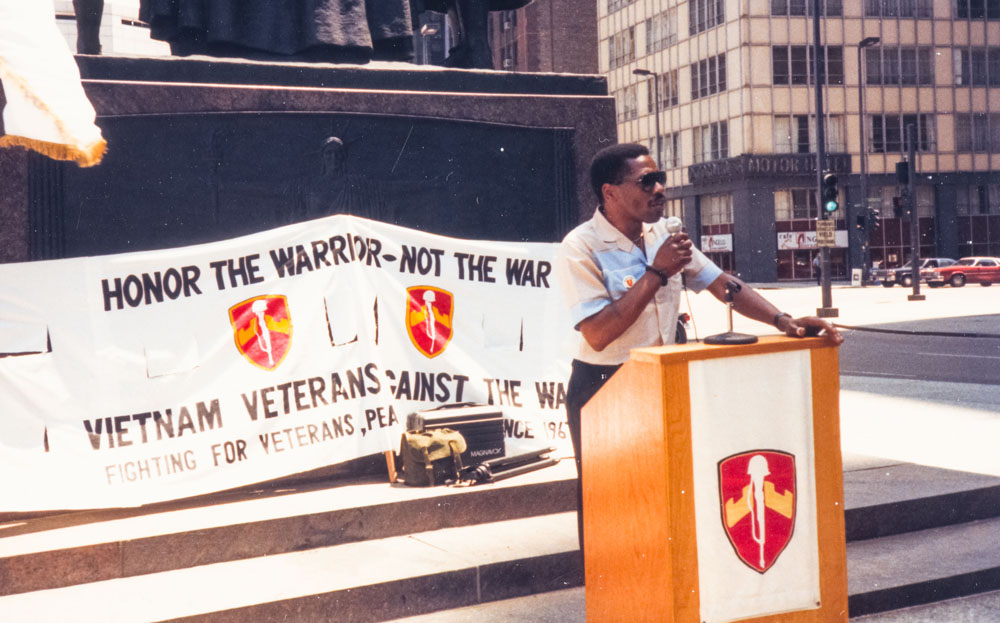 |
Another BrotherBy Larry Kerschner (reviewer)
Another Brother Clarence Fitch was an African American who came of age during the social turmoil of the sixties. He was an ordinary man whose life was both heroic and tragic. He was able to use his understanding of the imperialism of the American Empire, his life in a racist society, his use of and overcoming of drugs and his fight with HIV/AIDS as a springboard to a life of political activism. Clarence spoke on the American War against the people of Vietnam, he said "There can be no justification for what happened, but the culpability lies primarily with the politicians and generals who initiated, planned and ran the war. Not those who were sent to fight it. Until we honestly face up to what happened in Vietnam and those who are responsible, especially Johnson, Nixon, McNamara, Laird, Rusk, Kissinger, Westmoreland and Abrams, are held accountable, the past will continue to haunt us." His father had been in the military and Clarence grew up believing that being in the military was one of the few ways a black man could be seen as honorable in US society. He joined the Marines at age 18 just after graduating from high school while living in Jersey City. The military was made to seem glamorous. "I believed the whole spiel—hook, line and sinker." On leave from Camp Pendleton, he was home when the National Guard was in the streets of Newark. Between July 12th and July 17, 1967 during four days of rioting, looting, and property destruction. During that time 26 people died and hundreds were injured. He soon found himself in combat in Vietnam. "It was the first time I saw someone with their legs blown off but still alive...I never knew what dead people smelled like." Drugs were readily available, "To relieve the tension. I smoked a lot of grass and opium". Racism was flagrant with the black and brown troops getting the shit jobs. With the rise of Black Power, "We segregated ourselves during what we saw as the White Man's War...we recognized the Vietnamese as another brown people. I felt guilty as a black man in Vietnam." In 1971, he returned to Jersey City with an honorable discharge. At that time there was no follow-up veterans support system and heroin was cheap and available. In 1972, he got a job with 4,000 other employees of a large post office. Many of his co-workers were Vietnam vets. Clarence got involved with the union and was elected to shop steward. He was also centrally active as a leader in the local anti-apartheid movement. He would periodically kick the heroin but always returned. In 1983, after 13 years of running the streets he seriously considered suicide. It was thoughts of his daughter that led him to VA rehab centers. He joined VVAW where he found other Viet vets who understood what he was going through. In 1986, he was part of a VVAW delegation to Nicaragua that changed his life after seeing wounded Nicaraguan veterans as young as 13-14 in a hospital. In 1988, he began to have symptoms that led to a diagnosis of HIV/AIDS. The New Jersey Chapter of VVAW is named in honor of him. Another Brother is narrated chiefly by Clarence in an audiotaped interview by William Short, a fellow Vietnam veteran, before Clarence's death from AIDS in 1990. Larry Kerschner is a lifetime member of both VVAW and VFP.
|


